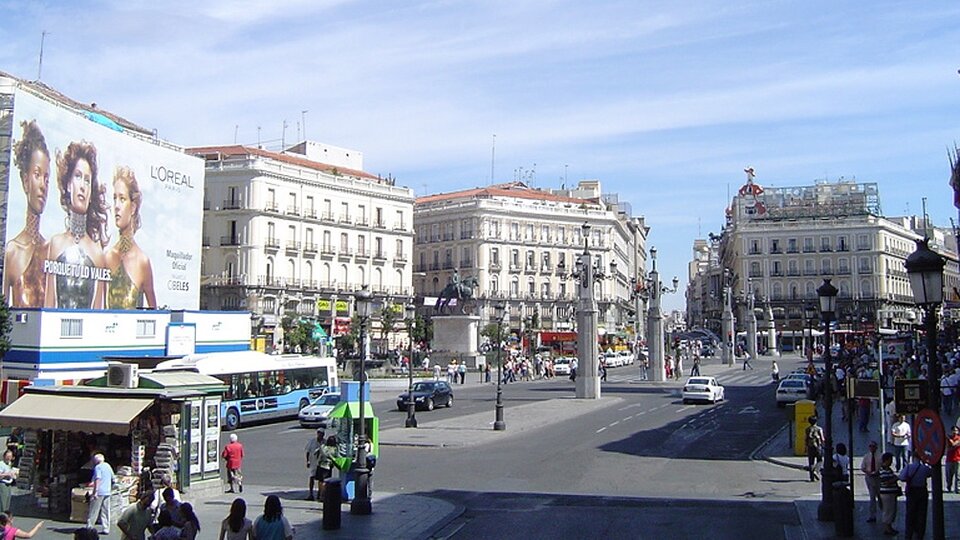
[ad_1]
The coronavirus pandemic will deprive Spaniards this year of one of the most characteristic images of New Year’s night: the crowd gathered in the central Puerta del Sol in Madrid to eat grapes to the rhythm of the New Year’s chimes.
This was announced by the regional government health authority in a statement in which it clarified that this traditional activity is suspended “on the squares or public roads of the region” which includes the capital of Spain.
The measure also includes limiting the number of people to Christmas fairs and events organized for children to deliver their greetings to the Three Kings and Santa Claus, the regional government said in the statement.
Also, the typical cavalcades to receive the kings on January 5 must be held in limited spaces and with the audience seated, he added the text, according to the AFP news agency.
Spanish health officials fear Christmas holidays will increase infections once the second wave of the pandemic was contained through restrictions such as curfews or the closure of bars.
The day before yesterday, the Spanish government recommended avoiding travel between regions, except to visit relatives, and limiting Christmas gatherings to ten people.
Spain is one of the European countries hardest hit by the pandemic, with 46,000 deaths and more than 1.6 million diagnosed infections.
The Spanish government has reported that will begin to vaccinate its population next January and that it expects to have between 15 and 20 million people vaccinated against the coronavirus by May or June 2021.
“We believe that at the beginning of January, we will be able to launch the vaccination campaign”, indicated the Minister of Health Salvador Illa during a press conference.
A first phase will include the vaccination of “people who are in nursing homes, health professionals who care for them, front-line health professionals” and dependent people., Illa detailed in Madrid.
For his part, President Pedro Sánchez said at a ceremony in the northern region of Cantabria that his government expects 2.5 million people to be vaccinated in the first stage, “which is expected to last about two months.
In a second step, thanks to the progressive availability of the doses, the government hopes that “May or June” will have “between 15 and 20 million Spaniards vaccinated”, declared Sánchez, quoted by the press agency AFP.
The population groups covered in this second step have not been specified.
“Finally, the third stage, when the number of doses and vaccines available will be large and very large, this will allow us to cover the entire population,” added the socialist leader.
The latter phase is expected to start in June, although the government has not specified when it believes all Spaniards will have received the vaccine, which will not be mandatory.
So far, the government has announced that it has authorized the acquisition of more than 100 million doses of vaccines, under European Union (EU) contracts with various laboratories.
Almost all vaccines require two doses, so the 47 million Spaniards would already be covered. Spain could devote the remaining doses to “solidarity tasks” with third countries, according to the government.
Spain is one of the European countries hardest hit by the novel coronavirus pandemic with nearly 1.7 million infections and more than 46,000 deaths.
But the situation improved last month, when the cumulative incidence rate of the virus was halved, to around 240 cases per 100,000 population in 14 days, according to the latest health ministry report.
.
[ad_2]
Source link
 Naaju Breaking News, Live Updates, Latest Headlines, Viral News, Top Stories, Trending Topics, Videos
Naaju Breaking News, Live Updates, Latest Headlines, Viral News, Top Stories, Trending Topics, Videos